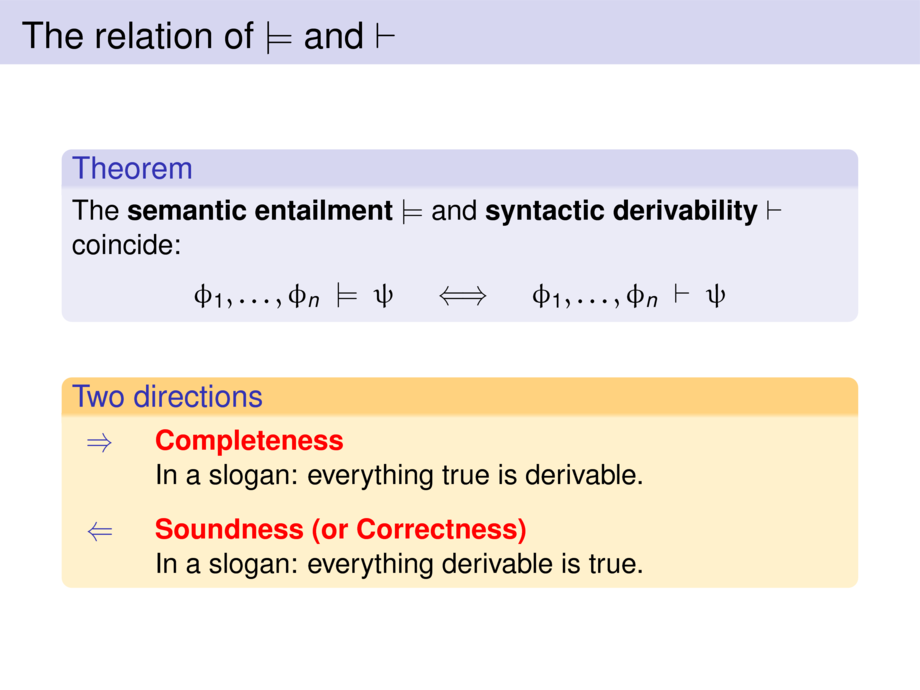
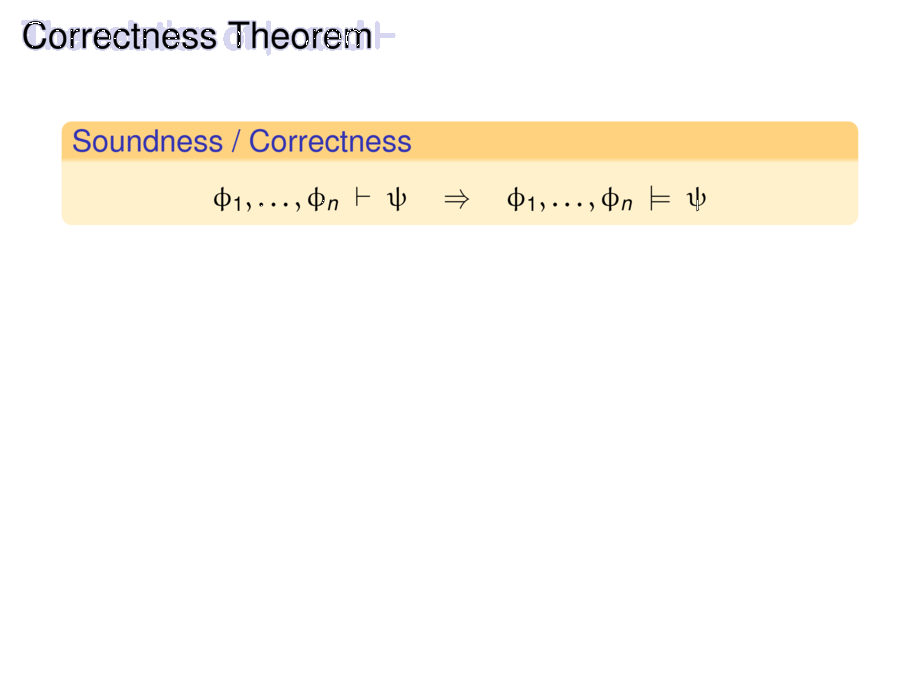
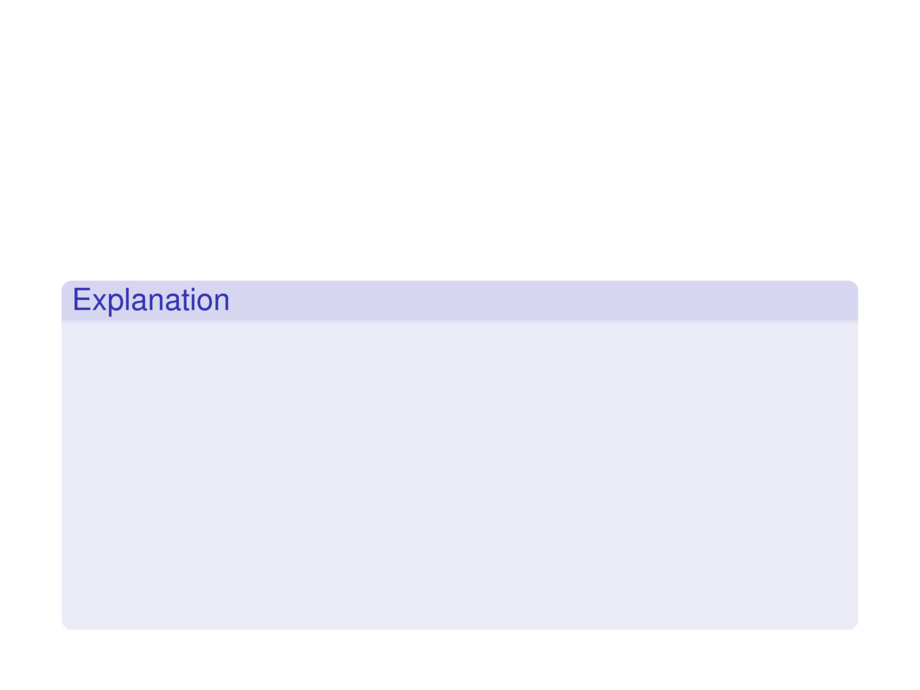
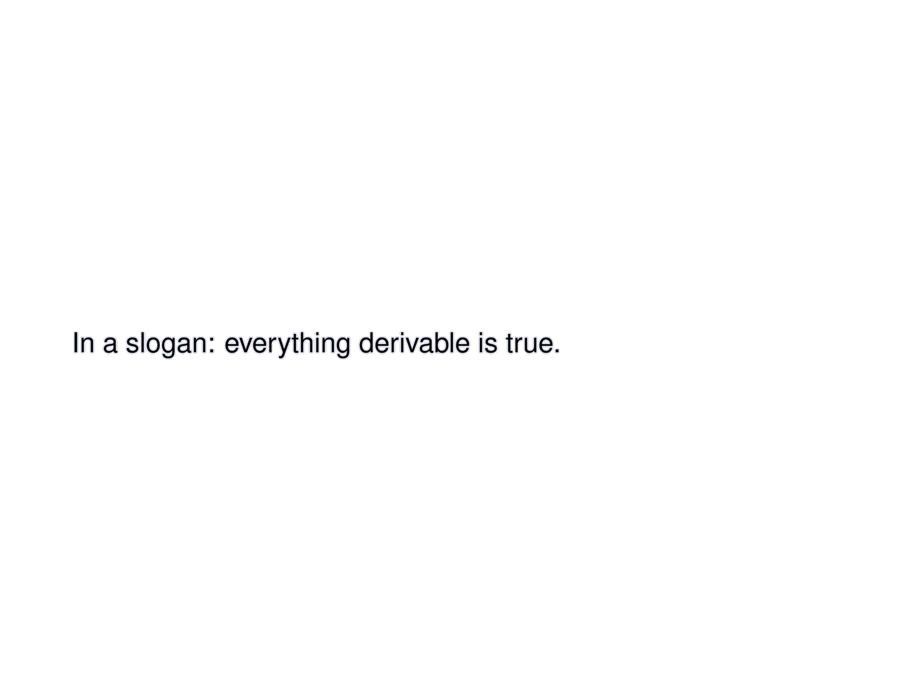
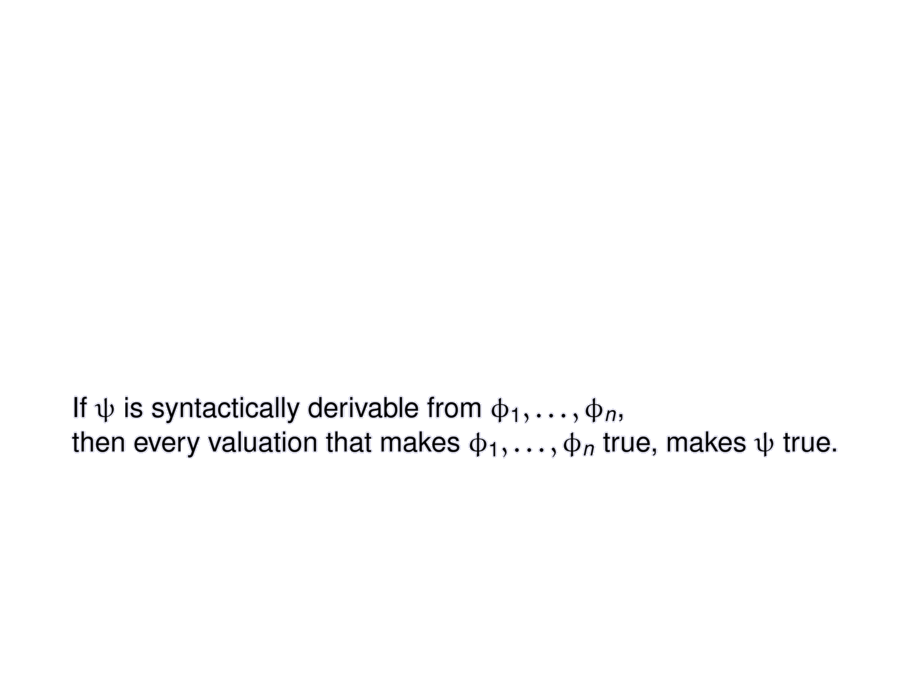































































































22/32
\begin{frame}
\frametitle{Correctness Theorem}
\begin{goal}{Soundness / Correctness}
\vspace{-1ex}
\begin{talign}
\phi_1,\ldots,\phi_n \;\vdash \; \psi
\quad\Rightarrow\quad
\phi_1,\ldots,\phi_n \;\models \; \psi
\end{talign}
\end{goal}
\pause\bigskip
\begin{block}{Explanation}
\pause
In a slogan: everything derivable is true.
\bigskip\pause
If $\psi$ is syntactically derivable from $\phi_1,\ldots,\phi_n$,\\
then every valuation that makes $\phi_1,\ldots,\phi_n$ true, makes $\psi$ true.
\bigskip\pause
Thus truth in a model (valuation) is preserved under derivation.
\bigskip\pause
The syntactic deduction rules are \emph{correct} in the sense that
it is not possible to derive \emph{false conclusions} from \emph{true premises}.
\end{block}
% \mpause[1]{In a slogan: everything true is derivable.\\
% {\small (Every semantical conclusion is also syntactically derivable.)}}
\end{frame}

